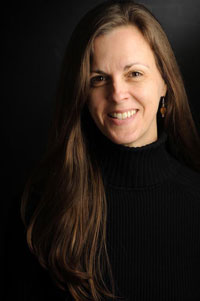This week finds us exploring the act and the art of blessing, and how we find blessings in the elements that make up our lives and our world. In their book Earth Prayers, Elizabeth Roberts and Elias Amidon write of how offering a blessing “is neither a simple benevolent wish nor an act of hubris. Rather it is an act of creative confidence.” These acts of creative confidence have ancient roots; throughout the scriptures and the Jewish and Christian traditions we see blessings given as sacramental gestures that acknowledge our connections with each other and our desire for another’s well-being.
Celtic literature offers a lively tradition of blessing. Today’s reflection from Sacred Journeys, taken from a letter to a friend, grew out of reading New Moon of the Seasons, a selection of prayers from Alexander Carmichael’s Carmina Gadelica. This brief collection, found in a bookshop years ago, was my first introduction to the multi-volume compendium of prayers that Carmichael gathered in the highlands and islands of Scotland in the nineteenth century.
Blessings have become tremendously important to me. My quiet time has been deeply enriched by a collection of Gaelic hymns, incantations, prayers, and blessings. The Gaelic sense of the divine as permeating life, work, nature, relationships, everything is amazing. Last night I read a series of blessings for milking cows. Their (the Gaelic people’s, not the cows’!) ability and desire to call forth the holy in all situations has fascinated me.
I think that as I see more and more pain in the world, the ability to bless becomes an increasingly radical act—particularly on the part of those who have received the pain. One of the Gaelic blessings, a “Blessing of the Kindling,” says in part, “God, kindle Thou in my heart within/A flame of love to my neighbour,/To my foe, to my friend, to my kindred all.” Even “to my foe”!
Questions for reflection
What and whom do you bless? When do you find it difficult to receive blessings—or to give them?
From Sacred Journeys © Jan L. Richardson
